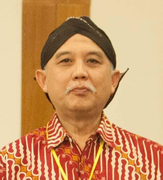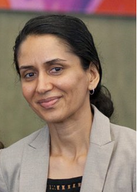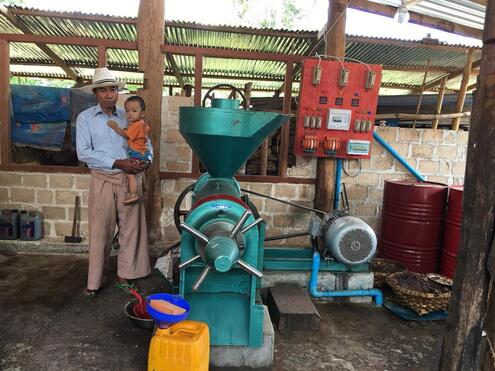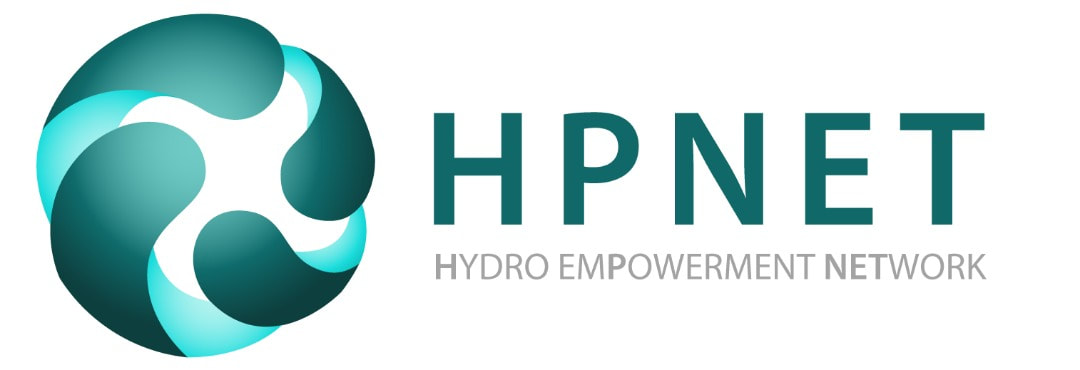MINI-GRID SUSTAINABILITY:
TRANSITIONING TO SOCIAL ENTERPRISE FOR ENERGY AND ECONOMIC DEVELOPMENT
DATE: TUESDAY, SEPTEMBER 17, 2019
TIME: 8 AM EDT / 2 PM CEST / 7 PM JAKARTA
REGISTER HERE
- The linkage between enterprise-based approaches and long-lived hydro mini-grids;
- Best practices to transition from grant-dependent to local social enterprise models, based on micro hydro experience in Nepal, Malaysia, and Indonesia;
- Solutions to scale their efforts to more micro hydro communities, including how to make better use of funding resources that currently go toward grant-dependent projects.
Presentations will be followed by a Q/A session open to all participants.
Learn more about our 2019 Mini-Grid Webinar Series, hosted by WISIONS and energypedia here!
In contexts where small-scale, community-based hydro mini-grids have been scaled to thousands of communities, projects typically have been funded by grant or subsidy programs, e.g. Nepal and Indonesia. The primary ownership and management structure in these projects has been user-based groups, e.g. village electrification committees (VECs), which can be inclusive but are challenged in achieving financial sustainability. Most projects operate only for night-time use, although electricity is available 24 hours -- leading to minimal revenue generation. Due to limited revenue, there is no savings. So when repair and maintenance is required the VECs raise funds through door-to-door collection. This is time intensive and a heavy burden for VEC leadership.
- Grant and subsidy dependent projects often lead to projects with poor load factors and therefore inadequate revenue generation to enable long-term financial sustainability.
- Ownership models of grant-dependent projects tend to be inclusive but typically are not conducive for enterprise development -- simply because user-based groups funded by grants were not required to perceive the need or knowhow to establish financial sustainability.
- While self-financed enterprise-driven projects have strong financial viability, they require more time to develop inclusive affordability and equitable benefits among factions of the community.
- To achieve both revenue-driven and equitable hydro mini-grids, a transition is needed toward local social enterprise, bringing economic value-add to the mini-grid, village enterprises, local social services, and households.
- A high impact end use for value-add of electricity is local agriculture and agri-processing; however tapping it requires energy practitioners to work with agri-value chain practitioners.
To support local practitioners and micro hydro communities in this transition, HPNET has established the initiative Social Enterprise for Energy and Economic Development (SEEED). One of its initial objectives is to identify and highlight the work of practitioners who are already paving the path toward long-lived mini-grids anchored in local social enterprise. This webinar helps to do so.

RESHA PIYA
WINROCK INTERNATIONAL
Ms. Resha Piya is a Program Specialist at Winrock International, based in Nepal. She has more than 18 years’ experience in promoting and developing Renewable Energy sectors. She has extensive experience in the planning, design, implementation and providing technical backstopping, coordination, monitoring and the evaluation of various renewable and rural energy projects and water projects involving solar home systems, institutional solar home system, solar water pumping systems, mini/micro hydro power, biomass technologies and on the productive use of energy for enhancing sustainable rural livelihoods, economic growth and poverty reduction. Ms. Piya has worked for Government of Nepal - Alternative Energy Promotion Centre (AEPC) and its programs, Helvetas, Practical Action South Asia Regional office and Asian Development Bank. Ms. Piya is proficient in technical, administrative and managerial function and has a good knowledge and understanding of development issues. She is an Electrical and Electronic Engineer with MSc. in Renewable Energy and Master of Engineering in Energy and Environmental Management.

ENERGY ACTION PARTNERS
Ms. Ayu Abdullah is co-founder and Regional Director for Southeast Asia at Energy Action Partners, an international nonprofit organization that focuses on capacity building and community development through collaborative and sustainable energy access programs. Ayu has almost a decade of experience working as a researcher and practitioner in sustainable energy and community development. She was previously at the Masdar Institute of Science and Technology in Abu Dhabi working on energy access, energy transition, sustainable energy policy and sustainable development. She has Bachelor’s and Master’s degrees in Aerospace Engineering from Purdue University, and a Master’s in Engineering Systems and Management from the Masdar Institute of Science and Technology.

IBEKA - INSTITUT BISNIS DAN EKONOMI KERAKYATAN (PEOPLE CENTERED BUSINESS AND ECONOMIC INSTITUTE)
Mr. Iskandar Kuntoadji is the founder of IBEKA, the People Centered Business and Economic Institute, based in Indonesia. A unique pioneer in people-centered development and social entrepreneur, Iskandar founded IBEKA, the recipient of the prestigious Ashden and Ramon Magsaysay Awards for its community micro hydro work in Indonesia. He has led micro hydro missions in Philippines and Rwanda, with the efforts of the Japan International Cooperation Agency (JICA). Now IBEKA is a social business entity with a strong engineering background, using a mixture of appropriate technology and sociology to empower communities and marginal groups in urban area, not only to increase the welfare but also drive the community to be self-reliant and reach the economic freedom stage. Various renewable energy interventions are used as an entry point to organize the local community and nurture further empowerment programs, such as village coop extension, farming extension, house hold enterprise extension, small manufacturer, and local workshop extension. Iskandar also focuses on bringing young urban-based engineers up-to-speed on how their skills can contribute to community development work.

DIPTI VAGHELA
HYDRO EMPOWERMENT NETWORK (HPNET)
Ms. Dipti Vaghela is the co-founder and manager of the Hydro Empowerment Network (HPNET), a south-south knowledge exchange platform that advances policy, technology, and socio-environmental aspects of small-scale hydropower across ten countries since established in 2013. Dipti brings sixteen years of experience in developing decentralized renewable energy solutions for rural electrification in S/SE Asia, bridging communities, local entrepreneurs, field-based NGOs, policy makers, and funding agencies. In 2016 she was awarded a Fulbright Public Policy Fellowship, placed at the Renewable Energy Association of Myanmar (REAM). Based in Myanmar, she supports and learns from Myanmar’s indigenous micro/mini hydropower, biomass energy, PV-irrigation practitioners. Dipti holds a Bachelor of Science in Mechanical Engineering from the University of California, Berkeley and a Master of Science in Environmental Studies from San Jose State University.

RANISHA BASNET
energypedia
Ms. Ranisha Basnet has more than 5 years of experience in knowledge management in the off-grid sector. She has worked with many national and international organizations to develop different knowledge products (webinars, database and knowledge portals) and also designed campaigns to raise awareness about the trending off-grid energy topics. Currently, she is writing her master thesis on “ Gender and Renewable Energy Mini Grids” and is attending the master program, Renewable Energy Engineering and Management at the University of Freiburg, Germany.

